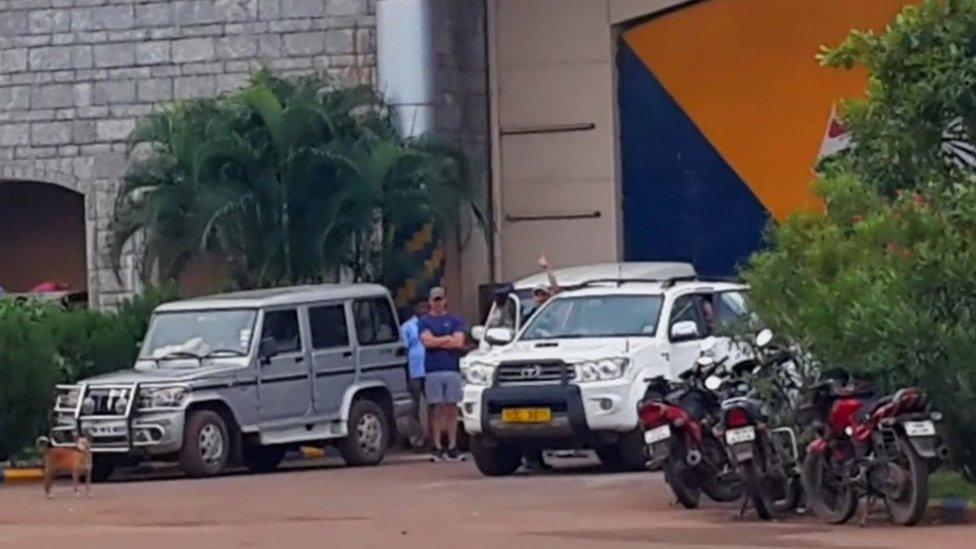Chennai Six: Who are the ex-soldiers released on appeal?
- Published
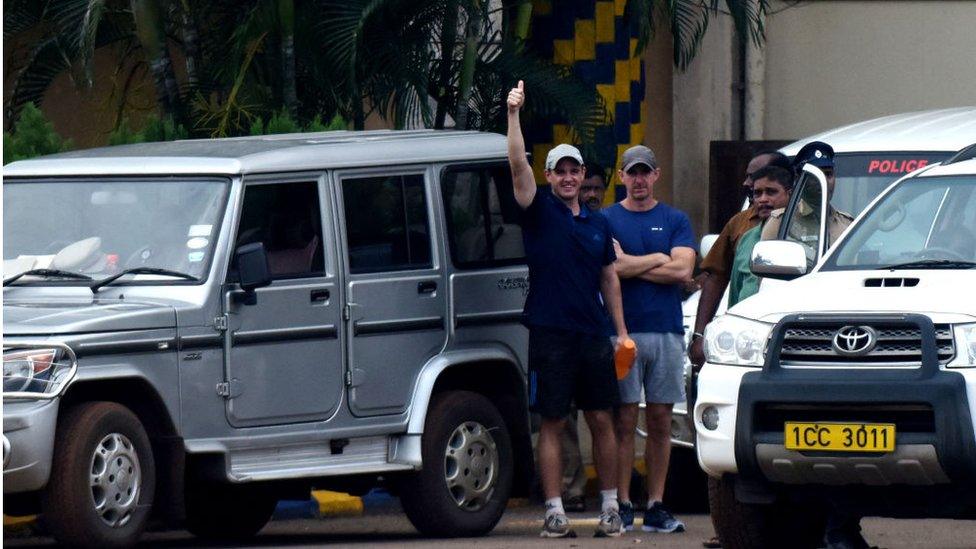
British anti-piracy crew member John Armstrong (L) gestures next to colleague Nick Simpson as they leave prison in Chennai
Six British men who were held in an Indian prison for more than four years have been released.
The so-called "Chennai Six" were arrested and sentenced on weapons charges, but were cleared on appeal.
Who are they?
All six are former soldiers who had taken on lucrative roles with an American company called AdvanFort, which specialises in providing armed escorts for merchant vessels.
They were part of the 35-man crew of an anti-piracy ship boarded by customs officials in the Indian Ocean in 2013.
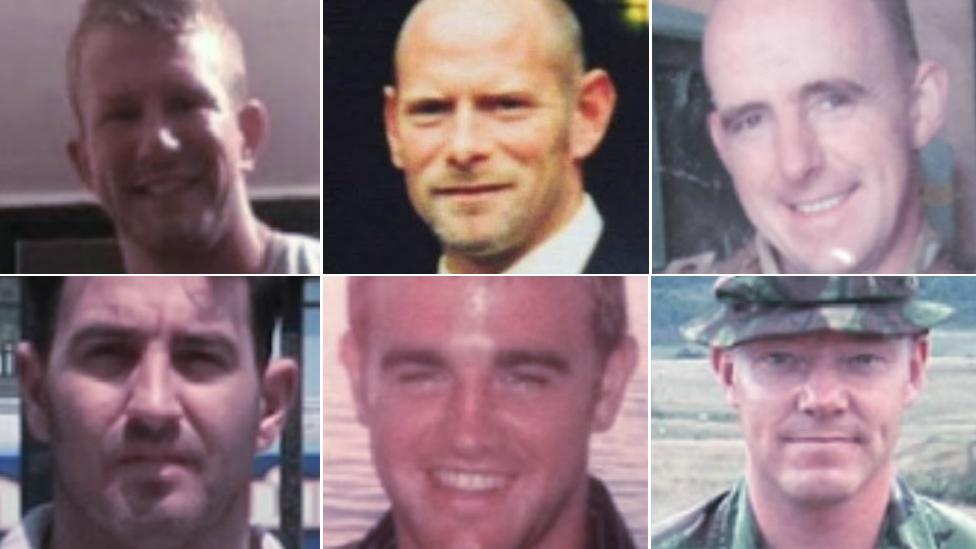
(From top left, clockwise) Nick Dunn, Paul Towers, Nick Simpson, Ray Tindall, John Armstrong and Billy Irving
They are:
Nick Dunn from Ashington, Northumberland
Billy Irving from Connel, Argyll
Ray Tindall from Chester
Paul Towers from Pocklington, East Yorkshire
John Armstrong from Wigton, Cumbria
Nicholas Simpson from Catterick, North Yorkshire

Why were they arrested?
They were accused of straying into Indian waters without permission as they headed for emergency fuel and supplies.
Indian officials boarded the ship and discovered 35 firearms, along with ammunition, which they said were illegally held. The crew argued that they were lawfully intended for anti-piracy purposes.
Indian maritime authorities also said the refuelling, with what was "suspected to be subsidised diesel within the Customs Waters" amounted to smuggling.
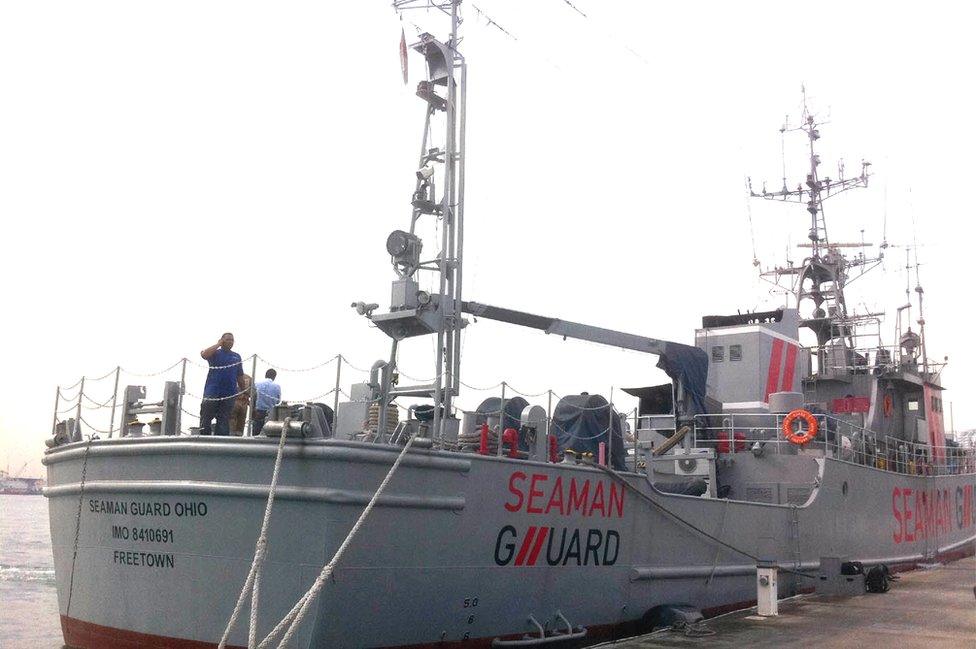
Indian personnel stand on the deck of the Seaman Guard Ohio at a dock in Tuticorin in October 2013. The six British men were arrested with the rest of the crew
Why were they there?
The men were working on the anti-piracy ship MV Seaman Guard Ohio, tasked with protecting commercial ships in the Persian Gulf-Indian Ocean region.
Maritime security has become an important requirement for merchant vessels, due to the threat posed by armed gangs, who have been known to hijack vessels and demand ransoms for the release of both craft and crew.
This has resulted in huge losses for shipping conglomerates around the world, both in terms of paying pirates and in insurance.
AdvanFort, which charges clients up to £60,000 for each passage through the area, is just one of many security companies offering a maritime service.
At the time of the men's arrest, the area off the western coastline of India was part of the international high-risk area for piracy. The area has since been reduced in size and moved away from the Indian coast.

Vehicles carrying British anti-piracy crew members leave prison in Chennai
Why were they convicted?
The Indian High Court initially accepted the ship's paperwork was in order and dismissed the case, but the men were unable to leave India while an appeal against the charges being dropped was considered.
This led to the men standing trial at the magistrate court, where it was decided they had "failed to prove" they were on anti-piracy duties.
They then went through a series of convictions and acquittals in lower courts before eventually being found guilty in 2016 and sentenced to five-year jail terms.
That verdict has now been overturned by the high court and judges have ordered the men's passports be returned.
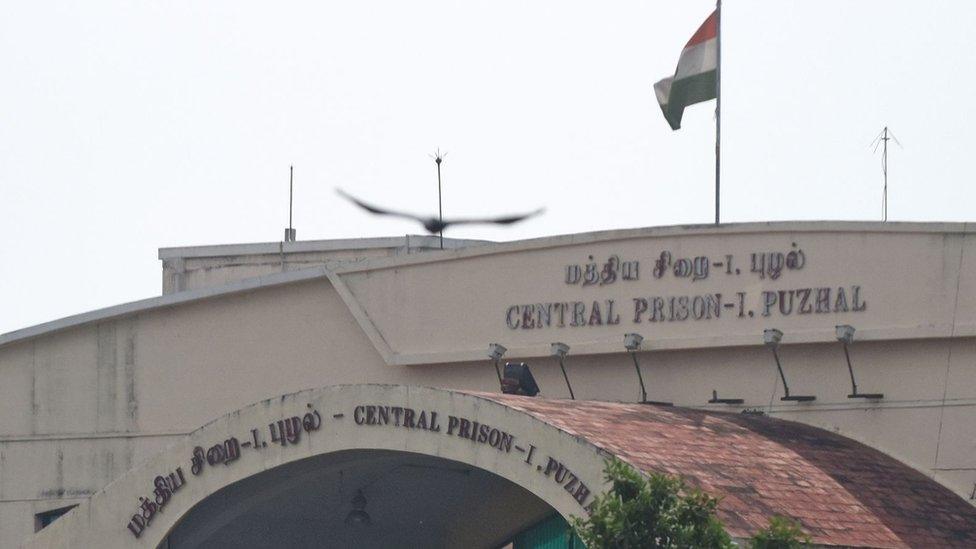
All charges against the 35 men were dropped with immediate effect, and the fines they were ordered to pay be refunded.
When will they be back in the UK?
The six are already free from prison - as are the 29 other crew members arrested with them - and a spokesman for the British consulate explained said they are working with the Indian authorities to discuss the next step.
Lawyers representing the men say they will have to spend some more time in India before they can expect to return home.
Families of the men say they hope they will be home in time for Christmas.
- Published28 November 2017
